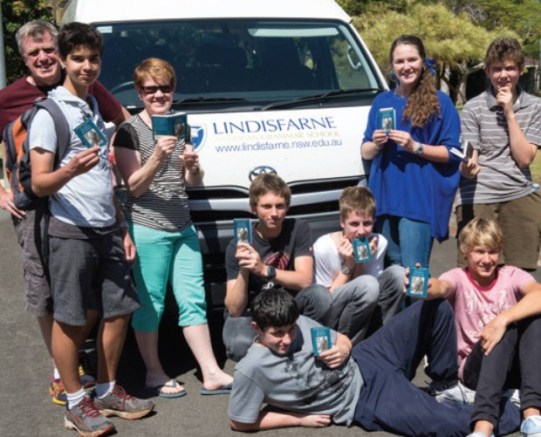In the hustle and bustle of modern life young people rarely have the space to stop and listen to what is going on inside. Even when they do often they are plugged into the online world. Silent retreats are a solution to this and provide students with an opportunity to go deeper into their self. This innovation profile is from the fifth edition of Experiri (Term 1 2014) and was contributed by Glenn Loughrey, then Chaplain at Lindisfarne AGS.

What was the need or challenge being addressed?
In the biannual survey, students reported an understanding of spirituality as being inherently within them. They expressed a desire to discover what this inner wisdom was and how they could uncover it for themselves. Meditation was introduced across the school and an invitation was given for students in years 9 -12 to participate in 3 day technology free silent retreats.
What was the response to the need?
It was proposed that we would provide a space where young people could explore their inner self through silence, solitude and separation from their normal lifestyle. This would not however be a typical school ‘camp’ where the roles of teacher and student would be enforced. On the retreat all are simply learners, are on first name terms, and support one another on their journey. The silent retreats are voluntary and cost the students (parents) to participate. In response to the need to go beyond the surface, no technology was allowed on the retreat, silence was respected at all times including meals. The retreat follows the monastic liturgy of the hours, involves spiritual reading (The Pocket Thomas Merton) and personal spiritual direction offered by myself each afternoon.
What was the impact?
In the beginning staff and parents were sceptical of the idea and saw it as a tool to ‘change’ behaviour. At this stage, students were enthusiastic, and girls from years 11 & 12 were more prevalent than boys . In the last 3 retreats this has changed, with year 9 and 10 boys being more prevalent than girls. It has allowed young people to challenge themselves by undertaking a rite of passage or quest for self, outside the accepted world of the adolescent. This program is now in its 4th year and has become a rite of passage for year 9 and 10 students.
What were the greatest challenges?
Getting parents to support their students who wished to attend. ‘I don’t want to pay for you to do nothing for a weekend!’ As noted above, parents are also very outcome driven. What is this going to do for you? What are you going to learn? These are questions that can only be answered after the event, and even then it is difficult to explain the journey into self. There is only a maximum of 3 retreats per year and 8 students per retreat, so it is specifically for those who are committed and have the support of their parents. It is not for everyone.
Experiri is a quarterly newsletter presenting stories of innovation in school ministry from Australia and beyond. Each edition provides two or three profiles of innovative strategies that have been developed in response to challenges or emerging issues for chaplains or others in Anglican Schools, including Heads and Religious Educators. Until now Experiri was an emailed newsletter but in the coming months some of the previous profiles will be posted here along with new stories.

Be First to Comment